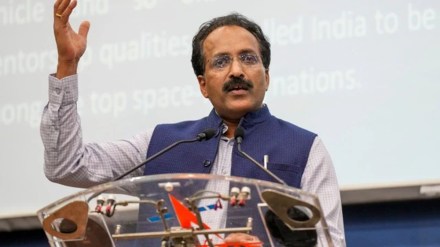Indian Space Research Organisation (Isro) chairman S Somanath applauded Elon Musk’s approach towards space exploration by developing rockets for continental travel and using the same technology for inter-planetary missions.
“By doing this, he is creating an economic activity around it which will sustain on itself. The beauty of his project is that it is not dependent on government funding, but instead relies on a revenue model. This will drive the whole process to become profitable,” Somanath said at Huddle Global 2024, a startup event organised by the Kerala government.
He also stressed on the key role that private sector players and startups have in realising the full potential of India’s space vision. With India operating just 15 satellites currently, Somanath highlighted the potential to expand to at least 500 satellites. For this, the private sector will be crucial, Somnath said, adding that there’s immense potential for private sector involvement in designing and launching small satellites, geospatial solutions, communication systems, orbital transfer vehicles, and more.
With India expanding its activities in space to inter-planetary exploration, future projects like India’s human spaceflight programme Gaganyaan and the Indian Space Station will also be collaborative efforts between Isro and private-sector, Somnath said.
He said Isro has identified hundreds of different sectors which will benefit from research done for space missions and talks with some selected industries have already started to transfer the technology to private players.
He noted that despite India’s reputation as a space power owing to recent successes, its share in the $386 billion global space economy remains at just 2%, or $5 billion. He added, that India is now aiming to increase this to $500 billion by 2030 and $1.5 trillion by 2047.
(The writer is in Thiruvananthapuram on Kerala government’s invitation)
